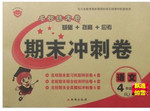题目内容
—What are you busy ________?
—I am busy ________ the plan for the sports meeting.
A.in; to make B.with; to make
C.in; making D.with; making
练习册系列答案
 名校练考卷期末冲刺卷系列答案
名校练考卷期末冲刺卷系列答案
相关题目
题目内容
—What are you busy ________?
—I am busy ________ the plan for the sports meeting.
A.in; to make B.with; to make
C.in; making D.with; making
 名校练考卷期末冲刺卷系列答案
名校练考卷期末冲刺卷系列答案